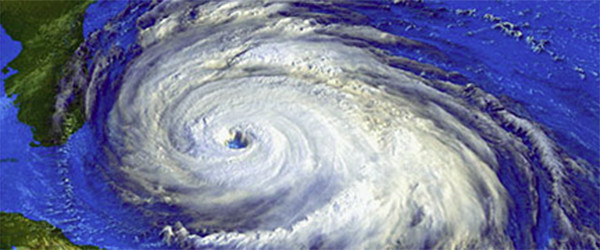The Importance of Looking Closer to Home
At WHOI, every day is World Ocean Day
Recent events underscore the effect of the oceans on our daily lives, and the potentially devastating effect of human activity. They also point to the critical need to explore and understand the oceans that cover the vast majority of our planet.
The sequence of ocean-related disasters began in January, when a ruinous 7.0 magnitude earthquake in Haiti resulted from a slip fault that extends along the seafloor at both ends of the island and runs lengthwise through its middle. In February, friction between oceanic and continental tectonic plates caused an 8.8 magnitude earthquake in Chile. In March, a volcanic eruption in Iceland disrupted travel and sent a cloud of ash across much of Europe and as far west as Newfoundland. That volcano is part of the 40,000 mile-long mid-ocean ridge mountain chain, the towering tips of which can only be touched by diving below 8,000 feet.
And, beginning in April, our desperate inability to control the flow or effectively mitigate the environmental damage in the aftermath of the Deepwater Horizon oil well blowout in the Gulf of Mexico has reminded us yet again of the extreme danger and difficulty of working in the ocean.
Less dramatic but equally significant changes are occurring all over the world ocean. The steady reduction of Arctic sea ice as climate warms at the poles will cause changes in the current flows and biological production of the Arctic ocean basin, while creating both opportunity and risk in shipping and mineral extraction. Nutrient runoff from agriculture and cities continues to produce ‘dead zones’ in the coastal ocean, while decades of subsidized, industrial scale fishing has depleted fish stocks throughout the world ocean. Looming over all these threats is climate change, which will bring warming and acidification during the coming century that may radically alter the survival and growth of many marine organisms vital to healthy productive ocean ecosystems.
Indeed, all of these events point us to the need for a new way of understanding and protecting the ocean, which of course ultimately means understanding and protecting our planet. We must no longer think in terms of boundaries -- offshore versus near shore, or terrestrial versus marine environments. We should instead focus on systems and their dynamic connections, how the land, sea, air, and ice all interact in ways we barely understand, let alone understand enough to accurately predict.
Today we are somewhat better prepared to give sufficient warning of a tsunami like that which took nearly 300,000 lives in Asia just five years ago, but we can’t yet say where or when it will happen next. We can say with certainty that there will be another major earthquake like that which took 230,000 lives in Haiti just five months ago, but we can’t predict the year, or whether it will be happen next in Haiti or in any one of a dozen high risk urban areas around the world, many with populations exceeding 10 million. And that mid-ocean ridge that pushes above ground in Iceland? We’ve explored much less than 1 percent of it.
We actually do have much of the technical capability to be better aware and prepared, if only we had had the opportunity to put it in place sooner. We have instruments that can be installed in the ocean, connected by cables and satellites, that give us not only earlier warnings but continuous updates on the health of our seas. Today, the effort to build such a network is beginning in a few places around the world, and could eventually grow into a truly global system to take the pulse of our ocean.
Now that the space shuttle Atlantis, named after the Woods Hole Oceanographic Institution’s first research vessel, is retiring after 120 million miles and thousands of hours of work in outer space, I encourage our leaders to turn their attention to questions much closer at hand. Our technical capability to attend to our own planet has never been greater, nor have the consequences of continued inattention ever been more alarming.










 Facebook
Facebook Twitter
Twitter Instagram
Instagram Vimeo
Vimeo YouTube
YouTube LinkedIn
LinkedIn RSS Feeds
RSS Feeds






